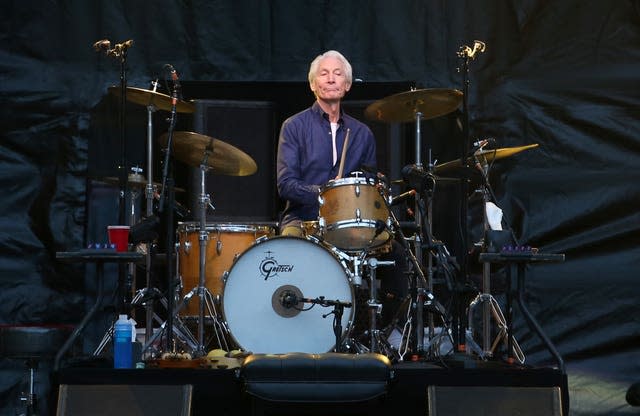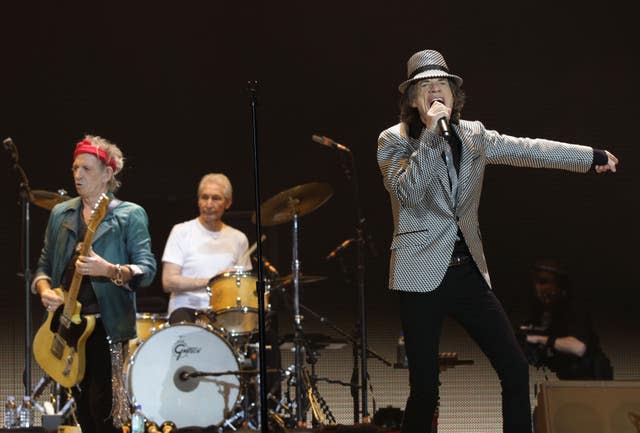Drummer Charlie Watts was the steady force that kept the Rolling Stones in time
Often at odds with his flamboyant band, The Rolling Stones drummer Charlie Watts was the quiet, considered and skilful force that kept his group in time.
The drummer, who has died aged 80, was known for his sophisticated and inventive playing on classic tracks including Jumpin’ Jack Flash, Honky Tonk Women and Brown Sugar.
However, he was also known for his deadpan wit, understated conversational style, love of tailored suits and deep obsession with jazz music.
Charles Robert Watts was born on June 2 1941 and grew up in Wembley, north-west London.
His father, also Charles Watts, was a lorry driver while his mother Lillian was a homemaker and the couple shared two children – Charlie and his sister Linda.

Watts attended Tyler Croft Secondary Modern School from 1952 to 1956 and as a schoolboy enjoyed art, cricket and football.
His parents gave him his first drum kit in 1955, allowing him to play along to his favourite jazz records, which included those by Duke Ellington and Charlie Parker.
By the age of 16, he was drumming in jazz groups and a regular on the London club scene, which was then focused on the parallel worlds of jazz and blues rock.
Alexis Korner, sometimes referred to as “the founding father of British blues”, invited Watts to join his band Blues Incorporated, which featured a number of future stars.
It was then that he met Mick Jagger, who would guest as a vocalist occasionally.
Jagger also had his own group with Keith Richards and Brian Jones but lacked a regular drummer.

Watts, ever sensible, initially turned down an invitation to join them in favour of his day job as a graphic designer at an advertising agency.
A six-month campaign eventually convinced him to join and Watts made his first appearance with the Rolling Stones in January 1963 at the Flamingo club in London’s Soho.
However, even then he refused to give up his day job, only doing so once the band had signed to Decca Records.
His time living in the band’s infamously squalid flat in Edith Grove, Chelsea, was short lived.
Once the band had recorded their first chart hits – Come On and I Wanna Be Your Man – he moved into an flat overlooking Regent’s Park.
He married his girlfriend, Shirley Shepherd, a sculpture student at the Royal College of Art who he met before finding fame, in 1964.

Watts’ fashion sense was often at odds with his bandmates, preferring finely-tailored suits over the bohemian chic of Jagger and Richards.
He said once: “To me the 1960s was Miles Davis and three-button suits.”
An enduring passion was cricket, which saw him regularly attend Lord’s Cricket Ground and other matches, sometimes with his bandmates.
Of all the group, he was reportedly the one that struggled most when they went into tax exile in France during the recording of their 1972 album Exile on Main St, so much did he miss England.
The year 1989 saw him inducted into the Rock on Roll Hall of Fame alongside the rest of the Rolling Stones and in 2006 he was voted in the Modern Drummer Hall, joining a roll call of famous names including Sir Ringo Starr, Keith Moon and Buddy Rich.
In 2016, Watts was ranked 12th in Rolling Stone magazine’s list of the 100 greatest drummers of all time.
He leaves behind his wife Shirley (nee Shepherd), daughter Seraphina, born in 1968, and granddaughter Charlotte, born in 1996.


